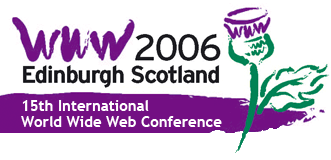
Alan Rector
Alan Rector is Professor of Medical Informatics in the Department of Computer Science at University of Manchester. Over the past twenty-five years he has led a series of projects on clinical decision support, medical records and medical terminology including the ground breaking PEN&PAD project project on intelligent medical records sponsored jointly by the UK Medical Research Council and Department of Health. During the 1990s his work focused on medical terminology and ontologies. Since 2002 he has led the MRC sponsored Cooperative Clinical E-Science Framework (CLEF) consortium of seven UK universities, NHS trusts, and cancer networks which aims to provide "joined up" information solutions for clinical care and clinical and bioscience research in cancer. From 2003 he led the JISC and EPSRC funded Co-ODE and HyOntUse projects, working with Stanford University and Epistemics to create a new platform for cooperative ontology development. His work on clinical terminology and ontologies provided a key stimulus for the technologies underpinning the Semantic Web. He has been a visiting senior scientist at Stanford University and consultant to the NHS Information Authority, Hewlett Packard, the Mayo Clinic and a variety of smaller companies. He is a member of the JISC Committee for the Support of Research, the National Cancer Research Institute Board for Bioinformatics, the Joint NHS/Higher Education Forum on Informatics and the Board of the Academic Forum of the UK Institute for Health Informatics. In 2003, Professor Rector was awarded the first British Computer Society Health Informatics Committee award for lifetime service to health informatics. He currently leads the Co-ODE and HyOntUse projects developing user oriented ontology development environments under the JISC and EPSRC Semantic Web and Autonomic Computing initiatives as well as the CLEF project, developing secure and ethical methods to collect live patient record data in research repositories, under the MRC eScience initiative. He received his BA in philosophy and mathematics from Pomona College, his medical training at the universities of Chicago and Minnesota where he obtained his MD, and his PhD in medical informatics from the University of Manchester. SynopsisSemantic Webs and the Semantic Web: Services, Resources and Technologies for Clinical Care and Biomedical ResearchThe Semantic Web will affect clinical care and research in four broad ways:
The implication of each of these developments will be discussed and possible applications and opportunities explored. |
Platinum SponsorsSponsor of The CIO Dinner |
 |